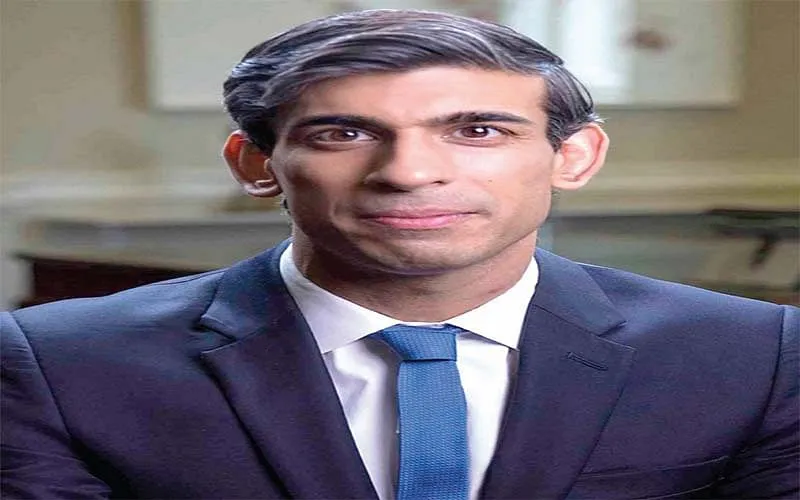This writer noted in an article entitled ‘End of the political road for Rishi Sunak?’ which was carried in the September 10 edition of this newspaper “…it is difficult to visualise the political resurrection of Rishi Sunak in Conservative party politics in the near future unless Liz Truss’s administration which is facing formidable challenges on the economic front makes such a mess that the tide turns against her decisively and Sunak feels brave enough to make another bid”. Truss who became Prime Minister on September 6 did make such a ‘mess’ of the country’s economic policies that she was compelled to resign a mere seven weeks after taking office, making her the shortest serving Prime Minister in Britain’s history. And, Rishi Sunak summoned the courage to throw his hat in the ring for a second time; he took over as Prime Minister of Britain on October 25.
Once it became clear that Liz Truss had to go the Conservative party managers decided that a new leader would have to be chosen very quickly. Hence, they shortened the selection process by declaring that a candidate for party leadership would have to secure the endorsements of at least a hundred members of parliament and that the party electoral college vote would, if necessary, take place electronically within a week of Truss’s announcement of her decision to resign on October 20. Two days later Sunak who had secured the required support announced his candidacy. Former PM Boris Johnson and Penny Mordaunt also made it known that they wanted to contest but it was not clear if they had the endorsements needed to proceed with their candidacies.
The adopted selection method for the party leadership indicated that the Conservatives did not really want a bruising contest to take place in the electoral college which would to the country’s uncertainties. Besides, the Conservative party has fallen far behind the Labour party in the opinion polls; naturally, it is demanding that fresh elections be called now. Eventually, Johnson withdrew his candidacy though his supporters claimed that he had the needed support to go ahead with his bid. Mordaunt remained in the field but not getting sufficient endorsements by the stipulated time on October 24 she too withdrew her name. That left Sunak as lone candidate as leader of the Conservative parliamentary party and consequently the undisputed claimant of the Prime Minister’s office.
It can be plausibly argued that had the contest gone to the party’s electoral college his success against a rival like Penny Mordaunt remained uncertain because of the inherent social prejudices of the middle-aged white middle class males who have a major vote in that college. They obviously do not have the feel for Sunak that his fellow MPs do. However, whatever may been the process through which Sunak has become Britain’s Prime Minister his assumption of office marks an important point in the country’s social and political evolution.
Sunak is of Indian descent and is Hindu. He openly practices his faith though he does not project his Indian roots. Sunak’s wife Akshata is the daughter of Infyosis founder Narayan Murthy. Her Indian connection is close. However, Sunak’s and his wife’s family background or their faith can be expected to play no role in his decision making. He is Prime Minister of Britain and his only focus will be to safeguard and promote Britain’s national interests.
Sunak, at 42, is the youngest person to become Britain’s Prime Minister in over two hundred years. He became an MP in 2015 and was made Chancellor of the Exchequer (Finance Minister) by Boris Johnson in February 2020. He has a professional background in finance and did remarkably well in his field, making a lot of money in the process. As Chancellor of the Exchequer, Sunak earned kudos for his handling of Britain’s economy during the covid crisis. One of the principal reasons that has led to his choice by his party MPs lies in their belief that he is the best they have to lead the government during this period of extraordinary challenges to the British economy. Indeed, following Johnson’s resignation he had larger support among Conservative Party MPs than Truss. His criticism of Truss’s economic vision and policies have proved correct. He can be expected to follow safe policies and has warned the people of the great economic and financial challenges that will impact them in the short term.
The current focus has been on Sunak’s financial skills but it would not be incorrect to assume that he possess high political skills too. Indeed, it is simply not possible for anyone to politically achieve what Sunak has unless he had very fine political instincts and a way to connect with people. He showed the latter quality early for he attended a famous public school and became its head boy. He will now have to use all his talents to keep his party together and also give hope to the British people who are enduring great hardships because of the dislocations caused all around but especially in the energy markets on account of Russia’s Ukraine war. And, all this has come in the wake of the economic distress caused by the covid pandemic.
While the economy will be Sunak’s primary focus as Prime Minister, he will have to give substantial attention to strategic and security issues too. He has no previous experience of handling these but his speeches before and after taking office indicate that he will follow Conservative party positions enunciated in its 2018 election manifesto.
India should have no unrealistic expectations from a Sunak led British government.







